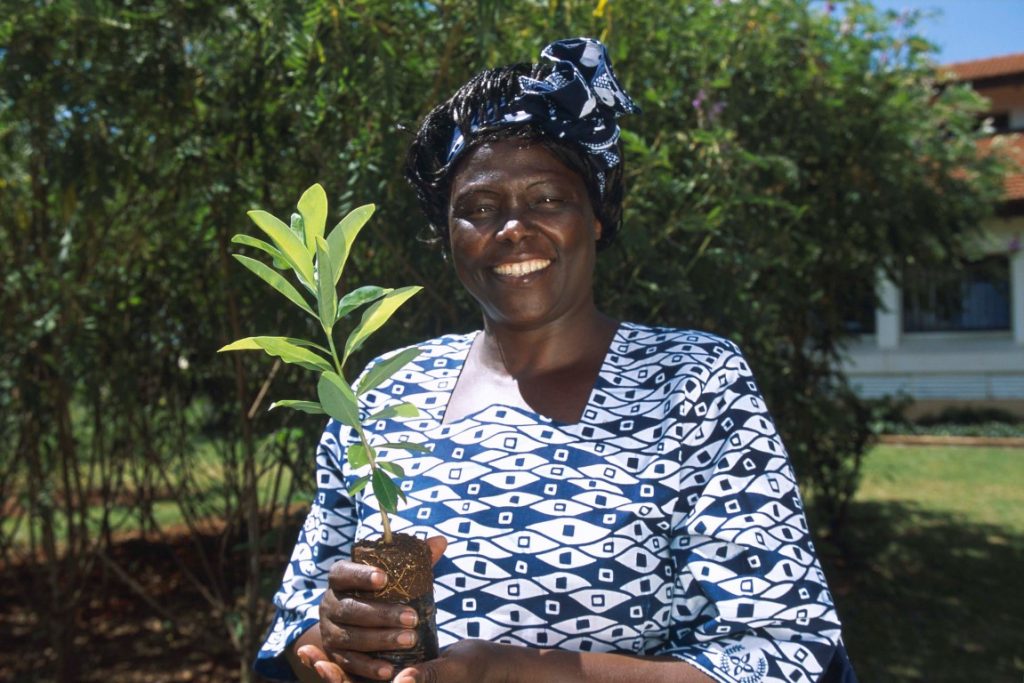Reuel Khoza: African solutions to African challenges
An African renaissance, spread across the whole continent, is an alluring vision. Sustainability and the New Partnership for Africa’s Development offer a basis for making a start, but it will take more than just sustainable development to transform the continent’s fortunes. Reuel Khoza outlines the agenda for Africa. –
It is no accident that the recent World Summit on Sustainable Development was held on the African continent. The focus placed on poverty as the key factor contributing to non-sustainable development sent out a strong message about what we need to do to set the world on the path to true sustainability. Africa needs far more attention in this regard than any other continent.
The 1992 Earth Summit in Rio de Janeiro failed to address adequately the social and economic elements of sustainable development, and the post-Rio globalization process further reinforced global inequality. The Johannesburg summit emphasized the need to address these matters while integrating international systems for trade, finance and investment with commitments on sustainable development.
These are ambitious aspirations which cannot be realized by governments alone. Hence the critical role to be played by the business sector in the sustainable development of the African continent.
The framework and implementation strategies developed for the New Partnership for Africa’s Development (NEPAD) give us a solid foundation for the re-birth of the continent. The outcomes of the Johannesburg summit support a new era of global partnerships between historical adversaries, now striving towards the common objective of sustainable development in its most holistic sense.
We also see a new era of corporate social responsibility, which is now seen as integral to doing business. Coupled with enhanced levels of governance and transparency, this will result in integrated sustainability reporting – on the basis of the triple bottom line – which is increasingly becoming the benchmark for business performance globally.
It is clear that no one sector should stand alone in the quest for sustainable development. Experience indicates that a key mechanism for the achievement of effective development programmes lies in the structuring of focused partnerships between major stakeholders.
In Africa these typically include government, the local and international private sector and state-owned enterprises. In this regard it is felt that development projects could benefit from the experience that enterprises such as ours – the state-owned South African electricity provider, Eskom – have gained in combining development priorities with good business sense.
The successes achieved by Eskom and the South African government in the field of national electrification and regional power grid development provide an excellent basis for the roll-out of similar projects globally. In addition, the current international trend towards enhanced levels of corporate social responsibility can only be of benefit to future projects of this nature.
To take these successes to a new level, focused and comprehensive development frameworks such as NEPAD are required. We see NEPAD as a core vehicle for the development of long value-chain commercial and developmental projects across the African continent, combining local business and equity partners with international public and private sector partners in the achievement of common objectives.
But this is not a simple matter. Projects in Africa are expected to generate higher returns and are saddled with a higher cost of capital than projects in other parts of the world. This “African risk premium” automatically puts African businesses at a competitive disadvantage, compromising the sustainability of their activities as well as their ability to penetrate essential global markets.
Mechanisms to insure against this risk and provide low-cost capital for African investments must be found. We are currently working with other partners in implementing a financing mechanism that will leverage official development assistance, African equity partners and international private sector financing to provide secure, low-cost financing for projects aimed at developing Africa’s electricity infrastructure.
NEPAD, being a true sustainable development framework, provides additional incentives for such financing on a sustainability platform. A major opportunity exists to use the NEPAD framework to implement African solutions for African challenges.
Africans have a proud ancestry of innovation, culture, science and technology. There is no reason why Africa cannot break the mould of traditional development patterns while building an economy that will drive the social, economic and environmental development of the continent.
Our own vision is a compelling and achievable one. It is a vision of a continent-wide electricity infrastructure connecting nations and exploiting the vast and renewable hydro-energy resources of southern Africa, the wasted fossil resources of West Africa and possibly the solar resources of North Africa.
We see this network energising the continent and supplying power competitively – even to Europe. If we can get electricity to all of Africa’s people, industries and businesses, then we have the foundation for a truly sustainable Africa.
The outcomes of the Johannesburg summit give even more impetus to innovative solutions that will enable Africa to take its rightful place in global markets. The clear continental challenge is to:
- replace Afro-pessimism with an abiding sense of efficacy and optimism;
- replace the ubiquitous breakdowns with pervasive breakthroughs;
- replace destructive corruption with transparency and good governance;
- melt down and transform the guns of Angola and the Democratic Republic of Congo into the firepower that will energise the African renaissance;
- turn the ruins of Zimbabwe’s economy into icons of hope for Africa’s future;
- harness Nigeria’s flames of waste into a force of light and enlightenment;
- ensure the interconnection of African energy, transport, communications and social networks;
- and make the African renaissance vision a reality.
The agenda for Africa is multi-dimensional and extremely challenging. This article has looked at it from the viewpoint of providing energy. But the same approach can be used to address the continental challenge with regard to transportation, information and communications technology, financial services and mining infrastructure – with the focus in all cases on sharing expertise across the whole continent.
Reuel Khoza
Reuel Khoza is chairman of Eskom, the state-owned South African electricity provider.



